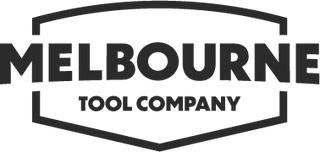Melbourne Tool Company
Melbourne Tool Company Large Router Plane
$179.00Unit price /UnavailableIn stockMelbourne Tool Company
Melbourne Tool Company Small Router Plane
$79.00Unit price /UnavailableIn stockMelbourne Tool Company
Melbourne Tool Company Cabinet Scraper
$59.00Unit price /UnavailableIn stockMelbourne Tool Company
Melbourne Tool Company Flat Sole Spokeshave
$89.00Unit price /UnavailableIn stockMelbourne Tool Company
Melbourne Tool Company Flat & Round Sole Spokeshave Set
$169.00Unit price /UnavailableMelbourne Tool Company
Melbourne Tool Company Router Plane Kit
$239.00Unit price /UnavailableIn stockMelbourne Tool Company
Melbourne Tool Company Kit of Nine Planes and Tools
From $1,299.00Unit price /Unavailable
Specialty Planes: Precision Tools for Detailed Woodworking
Specialty planes are essential for tasks that require precision and control beyond the capabilities of standard bench planes. These tools, including router planes, spokeshaves, and cabinet scrapers, are designed to handle intricate joinery, shaping, and finishing work. Their unique designs allow woodworkers to achieve clean cuts, smooth curves, and finely finished surfaces, making them invaluable in both traditional and modern woodworking practices.
Router planes are particularly useful for creating flat-bottomed recesses such as dados, grooves, and mortises. They excel in tasks where depth control is critical, ensuring consistent results across the workpiece. Spokeshaves, available with flat or round soles, are ideal for shaping and smoothing curved surfaces like chair legs or tool handles. The choice between flat and round soles depends on the specific curvature and accessibility of the area being worked on.
Cabinet scrapers offer an alternative to sanding, providing a means to achieve a smooth finish without the dust and potential grain distortion associated with abrasive methods. They are especially effective on difficult grain patterns where planes might cause tear-out. Proper technique and regular sharpening of the scraper's edge are key to optimal performance.
FAQs
What tasks are router planes best suited for?
Router planes are ideal for creating and refining flat-bottomed recesses such as dados, grooves, and mortises, ensuring consistent depth and smooth surfaces.
When should I use a spokeshave instead of a plane?
Spokeshaves are preferred for shaping and smoothing curved surfaces, offering greater control and precision in areas where standard planes cannot reach effectively.
How do I maintain a cabinet scraper for optimal performance?
Regularly sharpen the scraper's edge using a burnisher to maintain a fine burr, and keep the tool clean and free from rust to ensure smooth operation.
What is the difference between flat and round sole spokeshaves?
Flat sole spokeshaves are suitable for straight or gently curved surfaces, while round sole spokeshaves are designed for tighter curves and concave shapes.
Can specialty planes be used on all types of wood?
Yes, specialty planes can be used on various wood types, but it's important to adjust the tool's settings and blade sharpness according to the wood's hardness and grain pattern.
How do I choose the right specialty plane for my project?
Consider the specific task at hand to select the appropriate tool. Use router planes for recesses, spokeshaves for shaping curves, and cabinet scrapers for finishing surfaces.
Are there safety considerations when using specialty planes?
Always ensure blades are sharp and securely fastened, use proper hand positioning to maintain control, and wear appropriate personal protective equipment as needed.

















